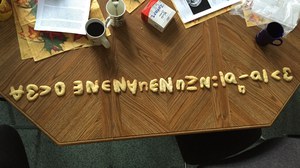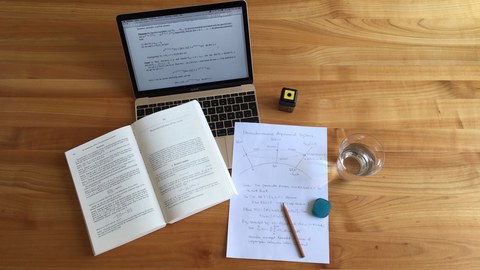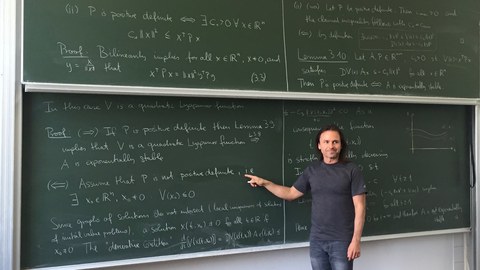Short introduction to the Chair
At a research stay at the old workplace UC Berkeley, USA (photo above) or having coffee with students who baked cookies showing the convergence of a sequence of real numbers (photo below) - Dynamics and Control can be fun and always remains a hot topic. Interested?
 © S.Siegmund
© S.Siegmund
Why dynamics and control?
A dynamical system is a rule for time evolution on a state space, e.g. the
- locations and speeds of planets in a solar system described by Newton’s law „force = mass x acceleration“, or the
- motion of billiard balls on a billiard table.
Dynamical systems are generated e.g. by the solutions of ordinary deterministic or random differential equations, difference equations, iterated function systems, cellular automata, dynamic equations with time delay, differential algebraic equations and many more. Dynamical systems are semigroup actions, usually of the non-negative reals or integers, on a manifold which is often a subset of a Banach space.
Control theory studies systematically the controllability of the time evolution of states under constraints, e.g. the
- reachability of stable orbits of satellites with a prescribed amount of fuel, or the
- development of a heat control which stabilizes the room temperature.
Control systems are e.g. differential equations which depend on a control which can be chosen from a set of admissible functions. Laplace transforms for the analysis in the frequency domain and Lyapunov functions from stability theory are used to develop a mathematical control strategy which can then be implemented in a real system.





